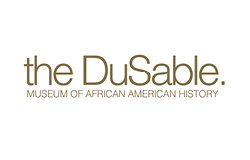
Results 1 to 25 of 55
William "Jack" Marshall papers
African American professional baseball player. (circa 1930s)
Virginia Julien papers
Virginia Wilson Julien (1916-2007) was a Chicago Public School teacher and Jean Baptiste Pointe DuSable scholar. Her research and activism regarding DuSable, the founder of Chicago, helped reestablish his place in Chicago and American history. The papers primarily relate to DuSable and include extensive historical research and original writings by Julien. The papers also provide insight into the efforts of
Valerie Howell/George Richardson collection
Umbrian Glee Club records
African American choral and musician club in Chicago in the early to mid twentieth century. Organized in 1895 at Bethel AME Church, the legendary men's chorus was a musical icon in Chicago. Throughout its existence, the Umbrian Glee Club was a tradition in Chicago and supported community and musical organizations, as well as provided support and opportunity to aspiring musicians.
The Tuskegee Student collection
A student newspaper at Tuskegee University.
Stepin Fetchit collection
Stepin Fetchit (Lincoln Theodore Monroe Andrew Perry) remains one of the most controversial movie actors in American history. While Stepin Fetchit was undoubtedly one of the most talented physical comedians ever to do his shtick on the Big Screen, achieving the rare status of being a character actor-supporting player who actually achieved superstar status in the 1930s, his characterization as
Scull-Banks collection
Sarah Ozella papers
The collection was donated by Sarah Ozella in effort to preserve documentation on Maudelle Bousfield, the first African American woman teacher/dean/principal of Wendell Phillips HS.
Sadie Bruce and Mary Bruce Dance Studio records
Sadie Bruce and her sister, Mary Bruce, each operated their own dance schools in Bronzeville. Sadie Bruce's dance studio was located at 54th and Calumet; Mary Bruce's was at 58th and South Parkway. The schools gave dance and music training to thousands of Bronzeville youth, and helped build public awareness of dance and music in the Black community.
Roxanna Vera Hunt papers
Photograph collection
Ouida Lindsey ("For Real") papers
Ouida Lindsey was a talk show hostess, a newspaper columnist, and an assistant dean at Columbia College Chicago. In 1974 she and her husband, Paul Lindsey, published Breaking the Bonds of Racism about their interracial marriage. She wrote a column for the Chicago Sun-Times called ""For Real"" from 1971-1978.
Olive Diggs papers
Olive Myrl Diggs (d. 1980) served as editor of the Chicago Bee from 1937 until it folded in 1947. After her time at the Bee, she served as director of the Neighborhood Youth Corps, and in 1979, retired as Administrative Assistant in the Chicago Department of Planning, City and Community Development. The Olive Diggs papers span from 1942 to 1980.
Neal Burroughs papers
Most Worshipful Prince Hall Grand Lodge, Free and Accepted Masons, Prince Hall Affiliation of Peoria Illinois records
Metz T.P. Lochard papers
The Metz T.P. Lochard papers span from 1926-1984, with the bulk of material from 1960-1980. Correspondence, drafts of editorials, newspaper clippings, and copies of other publications make up the majority of the papers. The papers reflect Lochard's time as editor-in-chief of The Chicago Defender, a prominent African-American newspaper. Metz T.P. Lochard (1896-1984) studied at the Sorbonne at the University of
Margaret Burroughs Papers
Dr. Margaret Taylor Goss Burroughs (1917-2011) was a prominent African American cultural and community leader. She was an artist, poet, writer, educator, and institution builder, best known for founding the DuSable Museum of African-American History, the Southside Community Arts Center and the National Conference of Artists. The Margaret Burroughs papers span from 1937-2010, and showcase the depth and diversity of
Luther Barnes/Quincy Club records
Advocate for African American railroad workers. The Quincy Club accommodated Black railroad workers operating on the City of New Orleans railroad route along the Mississippi River. Their exclusion from ""white only"" Chicago hotels encouraged their creating their own community facilities.
Lucy Montgomery papers
Lucy Montgomery (1911-1990) was an activist and philanthropist who supported civil rights and anti-war movements, the arts, and other liberal causes. During the 1960s, Montgomery’s personal financial support helped sustain the Student Nonviolent Coordinating Committee (SNCC), the Southern Christian Leadership Council (SCLC), the Mississippi Freedom Democratic Party, and The Black Panther Party. The Lucy Montgomery papers spans from 1901-1988 with
Lorraine Passovoy papers
Lorraine Passovoy (1919-1990) was an author and researcher whose work focused on Jean Baptiste Point DuSable, the founder of Chicago. The Lorraine Passovoy papers spans from 1963-1989, with the bulk of material from 1974-1984. The papers reflect Passovoy’s extensive research and writing about the life of Jean Baptiste Point DuSable. Her drafts, manuscripts, and collected research material make up the
Leonidas H. Berry papers
Gastroenterologist Leonidas Berry, 1902-1995, received his M. D. from Rush Medical College of the University of Chicago in 1929. In 1933, he received an M.S. degree in Pathology from the University of Illinois Medical School. Berry specialized in gastroenterology at Cook County Hospital in Chicago. A leader in the field of gastroenterology, Berry was the first American physician to use
Langston Hughes Society records
Langston Hughes was an American poet.
Joseph W. Rollins, Sr. and Charlemae Rollins Collection
Charlemae Hill Rollins and Joseph Walter Rollins, Sr. were a prominent couple in Chicago's African American community from the 1920s through the 1970s. While Charlemae Rollins is more well-known nationally, Joseph Rollins held a high civic profile through his veterans' activities, and he was frequently noted in society columns in Jet and the Chicago Defender. Charlemae Hill Rollins, librarian, educator,